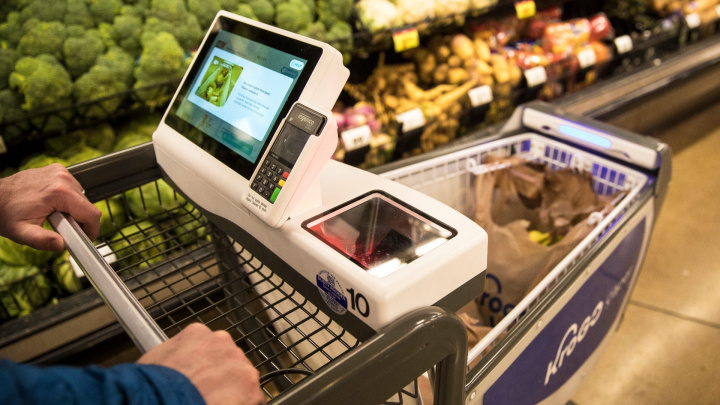AI in the Aisles: Kroger's Dynamic Pricing and Its Implications
Kroger's latest AI-powered dynamic pricing system has sparked mixed reactions, particularly due to concerns surrounding data privacy and inequality. How does this impact customer trust, and what ethical questions does the new technology raise?

Kroger's recently introduced AI-driven pricing system has generated significant buzz, not only among shoppers but also from lawmakers. Senators Elizabeth Warren and Bob Casey, for example, have expressed serious concerns about privacy risks and the potential for increased inequality. The new system can adjust prices in real-time based on demand and customer data, which Kroger positions as a tool to enhance the customer experience. However, many question the ethical application of the technology and the potential for corporate profit maximization.
Data Privacy and Ethical Questions
The new AI pricing system raises significant data privacy concerns, as Kroger builds highly detailed customer profiles based on collected data. The system also employs facial recognition technology capable of identifying shoppers' gender and age to provide personalized offers. Furthermore, the EDGE (Enhanced Display for Grocery Environment) system allows Kroger to precisely determine an individual shopper's maximum willingness to pay. This level of data collection worries many, as such practices could potentially infringe on consumer privacy rights and lead to discriminatory pricing policies.
Kroger is one of the largest grocery retail chains in the United States, founded in 1883. The company operates over 2,700 stores under various brand names across 35 US states. Kroger offers a wide selection of groceries, household goods, and pharmacy products, and also features its own private-label brands. The company is making significant investments in e-commerce solutions and digital innovations.
Customer Trust and Loyalty
AI-based dynamic pricing strategies can have a profound impact on consumer trust. While AI can indeed improve the customer experience, there is growing skepticism surrounding its application in retail. According to the Edelman 2024 Trust Barometer, global consumer trust in AI has decreased from 61% to 53% over the past five years, with an even steeper drop in the United States from 50% to 35%. This erosion of trust poses a significant challenge for retailers, especially if shoppers feel that prices are being manipulated based on their personal data.
To maintain customer loyalty, retailers must strike a balance between the benefits offered by AI and ethical considerations. It is crucial to provide transparency regarding pricing algorithms and ensure the system employs fair pricing models. It's also essential that value for money remains the primary consideration for shoppers, as affordability is more critical than ever in today's market environment.
Competitive Landscape with Other Retail Chains
Alongside Kroger's dynamic pricing system, other major retail chains also employ AI-based pricing strategies, though each uses different approaches and features. For example:
- Shoprite: Through its Price Plus club card and points system, Shoprite primarily offers member-specific discounts and rewards.
- ALDI: With limited AI application, ALDI focuses on everyday low prices, mainly featuring private label products.
- Hy-Vee: Concentrates on local products with weekly updated promotional ads; its prices are particularly competitive for locally sourced produce.
- Acme: Utilizes a traditional pricing system with some dynamic elements; notably competitive in certain departments, such as the bakery.
While Kroger's system employs the most advanced technology, other chains tend to rely more on traditional loyalty programs with minor AI enhancements. ALDI, in contrast, builds on price stability, while local players like Hy-Vee focus on community needs and competitiveness in specific departments. Each strategy presents distinct advantages and challenges regarding consumer trust, pricing transparency, and overall value.